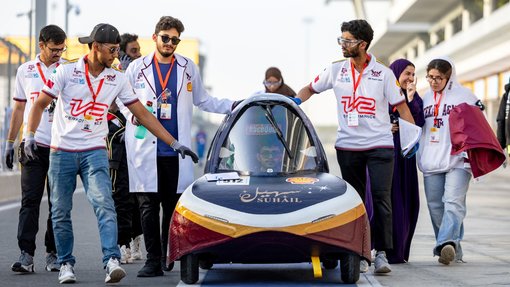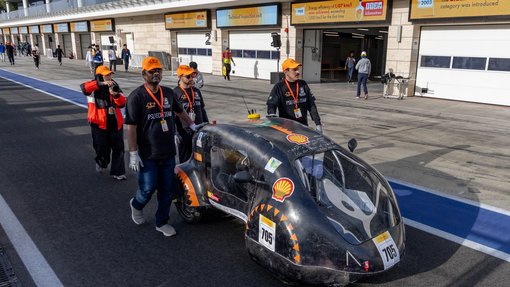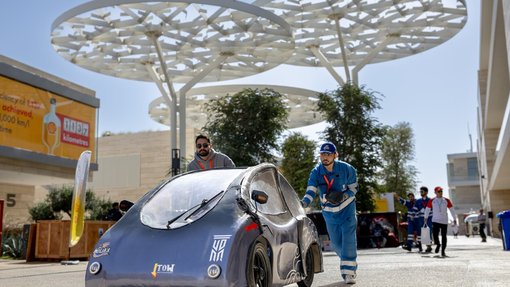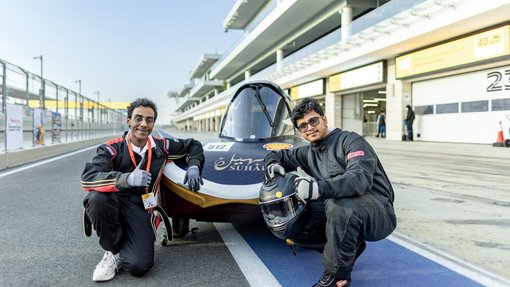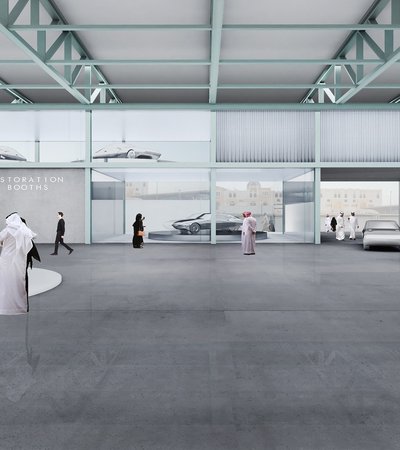Held under the patronage of H.E. Sheikha Al Mayassa Bint Hamad bin Khalifa Al Thani, the event brought together over 60 teams from 12 countries, reinforcing Qatar’s commitment to advancing automotive design and sustainability.
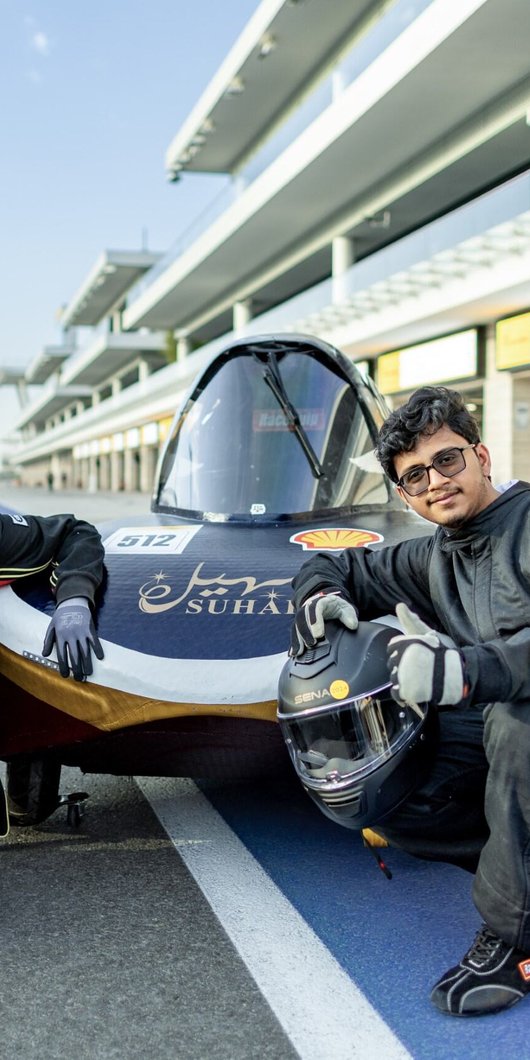
Vehicle Design Off-Track Award at Shell Eco-marathon
Qatar Auto Museum and Qatar Museums proudly sponsored the Vehicle Design Off-Track Award at the Shell Eco-marathon Asia-Pacific & Middle East 2025, a globally recognised student engineering competition. This award celebrates excellence in innovation, aesthetics, and sustainable vehicle design, highlighting the creativity of future engineers.
The competition provided a platform for young engineers to push the boundaries of energy efficiency in vehicle design. Students developed vehicles that maximised fuel efficiency through rigorous design and engineering processes, addressing real-world energy challenges. The event also launched the Vehicle Design Off-Track Award in partnership with Shell, recognising outstanding vehicle design in Prototype and Urban Concept categories. Attendees were given a behind-the-scenes look at the engineering process, with interactive displays and expert talks on the latest advancements in energy-efficient mobility. The event highlighted the importance of sustainable solutions in the automotive industry and encouraged participants to explore careers in automotive engineering and green technology.
Qatar Auto Museum received 22 applications for the Vehicle Design Off-Track Award, with 15 submissions in the Prototype category and 7 in the Urban Concept category, representing teams from nine countries: Brunei, China, Egypt, Indonesia, India, Malaysia, Pakistan, Qatar, and Saudi Arabia. The judging criteria assessed aesthetics, ergonomics, technical feasibility, aerodynamics, and sustainability practices, with each aspect contributing 20% to the final score.
The winning team in the Prototype category was Team Number 211, Antasena ITS Team from Institut Teknologi Sepuluh Nopember in Indonesia, with their Antasena Falcon 2.0 Hydrogen Fuel Cell vehicle. The design seamlessly blended aesthetics, ergonomics, and innovation to create an efficient and safe sustainable mobility solution.
The winning team in the Urban Concept category was Team Number 501, ITS Team Sapuangin from Institut Teknologi Sepuluh Nopember in Indonesia. Their Internal Combustion Engine car demonstrated significant improvements in energy efficiency through continuous innovation in body, chassis, engine, and wheels.
The Vehicle Design Off-Track Award celebrated the creativity and technical expertise of student teams, further promoting innovation and sustainability in automotive design.
